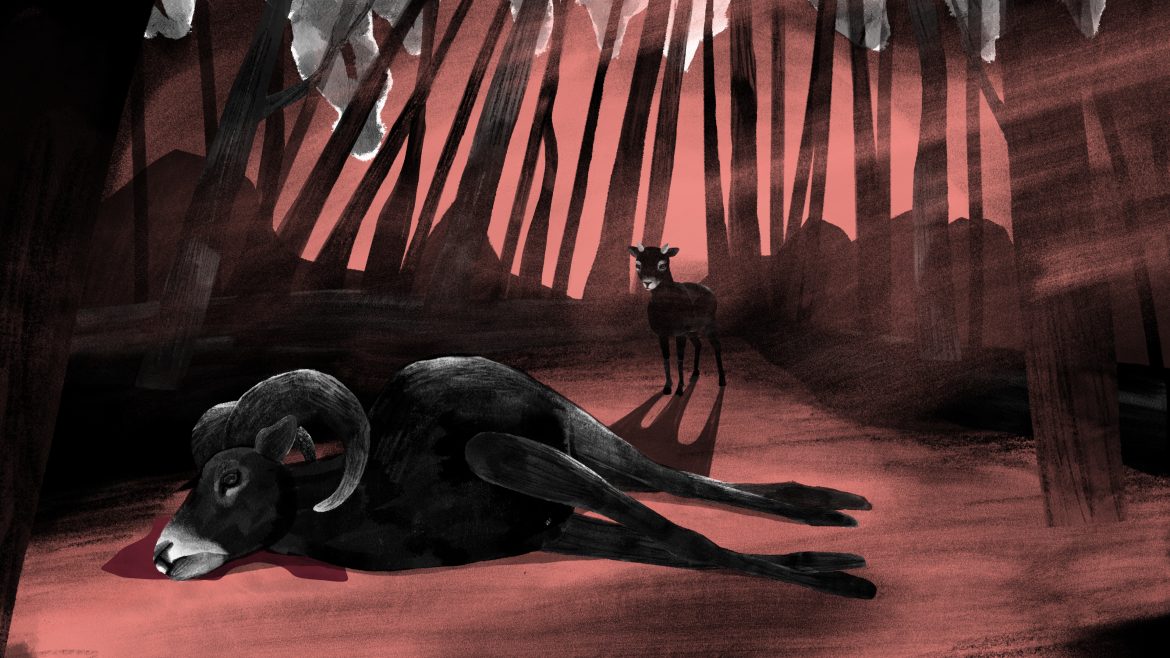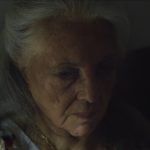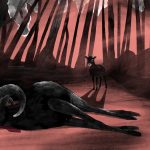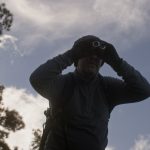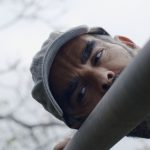• Shira Ukrainitz’s impeccable animation tackles a whole environmental problem in ‘The Last Mouflon’, while ‘Meteor’ by Víctor Moreno places the audience on the edge of universal abyss
• ‘The Things We Love’, by Pablo Vilas, and ‘Aitana’, by Marina Alberti, explore different ways of dealing with the health and cognitive deterioration of loved ones
• The Festival has scheduled this second installment of Canarian pieces for this Saturday, April 20, at Cine Yelmo Las Arenas (Screen 6, 11:45 a.m. and 7:15 p.m.)
- Aitana
- THE LAST MOUFLON
- METEOR
- THE THINGS WE LOVE
Las Palmas de Gran Canaria, Friday, April 19, 2024. The impact generated in the environment and in those who inhabit it by external agents that invade the territory, be it a meteorite or an exogenous species, and the alteration that must be faced when the health of a loved one deteriorates are the two thematic threads comprising Canarias Cinema’s second short film session. Shira Ukrainitz and Omar Al Abdul Razzak, Víctor Moreno, Pablo Vilas and Marina Alberti are the filmmakers whose pieces will be competing in the section the Las Palmas de Gran Canaria International Film Festival dedicates to audiovisual Canarian creations. From oneiric animation to the deepest intimacy the author’s way of looking can convey, these titles offer the audience an emotional experience that proves the sector’s potential and skills in the archipelago. This selection will be screened this Saturday, April 20 (Cine Yelmo Las Arenas Screen 6, 11:45 a.m. and 7:15 p.m.).
The Last Mouflon (Shira Ukrainitz, Omar Al Abdul Razzak) | 10 min.
Animator Shira Ukrainitz and filmmaker Omar Al Abdul Razzak have made together another piece full of narrative audacity and a recognizable composition. Strictly speaking, The Biological Invasions. The Case of Ovis Orientalis Musimon on the Island of Tenerife: “The Last Mouflon” is the full title of an essentially-animated short film that includes real documentary images of the 1971 release of the first mouflons in the natural area of Mount Teide: an initiative of Franco’s regime at the request of big game hunting enthusiasts on the island which has ended up causing a real ecological problem.
Mouflons destroy native flora and vegetation, and are difficult to eradicate, despite the fact that two hunting seasons a year are authorized.
“This story is a documentary. There’s nothing wrong, but it’s all wrong,” explains Shira Ukrainitz about her work. “We had many, many conversations during the creative process. We also didn’t want to say that hunting is bad, or how bad hunters are. There’s more to it than that: a decision some gentlemen in suits made at the time, and things went awry from there.” In other words, “there is no one bad, but things are going badly.”
Ukrainitz has already made, together with Omar Al Abdul Razzak, the short films Confined Spaces (2019) and La prima cosa (2021), both selected in previous editions of Canarias Cinema. Last year, Razzak also presented his celebrated feature film Killing Crabs (2023) at the festival, a title in which Shira served as executive producer, and which won the 2023 Richard Leacock Award for Best Feature Film. Throughout their brief but solid career, this pair of filmmakers have demonstrated their singular vision and their expertise when it comes to creating films with its own identity. Something that applies to The Last Mouflon, too.
Their short film, in which Ukrainitz has led the way in the direction department, was born from a casual and ephemeral encounter the pair of filmmakers had with one of the mouflons of Mount Teide. “Actually, at the beginning we had no idea we’d ended up making it exactly like that. We just discovered the story, walking around. Then everything expanded,” says the animator.
The fact is that “this is such a strange story… We started to write a tale with a young mouflon. An children’s tale, almost. But little by little we realized how tragic it all was, which led us to adopt a more adult approach and aesthetics.”. It was at that point when Ukrainitz designed the final artwork, taken care of all the details herself, before working with a team of animators to definitely achieve that “faltering movement, which gives the feeling that something is wrong.”
The filmmaker admits she loves “drawing nature, the landscapes of Tenerife, researching, taking pictures, it was all very nice. Little by little we managed to put together a style that didn’t exist, trying things out. And then we somehow got to that dreamy feeling, also working with the musician in a gradual way. Working with Iván Blanco has been spectacular.”
Ukrainitz explains that in her field “we don’t take so long now. In real life, we spent a year animating this short film, working at home during the pandemic. I have noted a tremendous technical change in the things that can be done at home. Now you don’t need a big studio, with a lot of equipment.”
The Last Mouflon premiered in Krakow, and has been screened at the Valladolid International Film Festival (SEMINCI) and several animation festivals. Now it’s coming to the capital of Gran Canaria, to a festival that “I love,” confesses Shira Ukrainitz: “It’s my favorite festival, and my fourth time there!” About the film sector in the Canary Islands, she adds that “with all those animation studios, there is potential, of course,” to do interesting things at a creative level.
Meteor (Víctor Moreno) | 17 min.
Víctor Moreno claims that short and feature films “are at the same cinematographic level. It is true that your involvement and work is much less in a short film. That’s why I like to combine both. To avoid losing the muscle, and to have them all well-prepared.” A veteran of the Gran-Canarian Festival, Moreno’s longtime relationship with Canarias Cinema has spanned over a decade and has resulted, among other things, in him receiving an Honorary Award in 2021. He has made critically acclaimed feature films such as The Hidden City (2018) or Edificio España (2014), which hasn’t taken away his passion when facing shorter pieces. Something that he conveys in a particular way in Meteor.
This short film “took a long time to make. It started before the pandemic, then it stopped. We wanted to shoot on location and we couldn’t get the permits. Then this meteor hit Gran Canaria and we decided to take advantage of it. It just fell out of the sky.” Literally.
Moreno faces from a local point of view what he conceives as “a bewilderment, because we are talking about something so cosmic, so big in regards to the human condition. You don’t have time to assimilate it. That’s what happened to me, despite having already heard sonic boom sounds before. I didn’t even think it was a meteor falling. It was quite disturbing, disconcerting. I liked the idea of starting there, that it would begin with local people, with something very local, and that we could go to the cosmos from there.”
Moreno’s short film focuses on José García, a real meteorite hunter that he portrays on screen. “Deep down,” he says, “we wanted to pursue that dreamy idea of his. I identify a lot with people trying to reach the unattainable. That was the germ, what interested me the most, and that’s where the short film started, before the meteor fell. Because it’s very similar to what I try to do as a filmmaker.”
Meteor was completed with cinematography by Zhana Yordanova and sound by Amanda Villavieja and Franco Lucarelli, “with a mostly Canarian crew,” Moreno points out. Everything to play with “a final idea of abstraction around the secrets of the universe, which are hypnotic and indecipherable.”
The Canarian director says he is “always grateful” to the Festival of the capital of Gran Canaria “for allowing me to show my films here. The Festival has seen me grow as a filmmaker, everything I’ve made has been included in its program. It has been a way to not only grow as a director, but as an spectator, too.” As, for instance, in the 2023 edition, in which “I didn’t submit anything and I watched about twenty films, enjoying myself like a child.” Moreno points out that the event, “is excellent in terms of programming,” with a unique perspective that comes from having known it directly since its second edition. “It was the first time in my life that I went to a film festival. This year will be doubly special, because it also coincides with my birthday. Here you reunite with friends, as usual: and you can share your work with others, which is the most important thing. After making it, of course.”
The Things We Love (Pablo Vilas) | 17 min.
Mingo Ruano and Aranza Coello are the main characters of The Things We Love, Pablo Vilas’ second short film selected at the Las Palmas de Gran Canaria International Film Festival. The couple carries by themselves this story in the countryside: a story of love, of concern for the loved one, of the search for the origin of those leaks through which important things escape.
Vilas has a technical background: he has worked as a cameraman, editor and in post-production. As a filmmaker he now seeks “to tell stories in which there’s enough space for the audience to feel and think freely,” He is also interested in “creating atmospheres in which subtext might be conveyed in a more sensory than narrative way. I usually like those atmospheres to be full of mystery, as if there were some sort of hidden reality on the screen that we don’t get to fully unveil.” On the other hand, “a recurring theme that attracts me is the relationship between human beings and nature,” says the director of The Things We Love, which, in fact, is largely set in natural spaces.
The short film arose “from a personal experience in which I realized how complex is the role of the caregiver of someone who is going through a delicate health problem,” explains Vilas. “In those cases, it’s sometimes difficult to find a balance between offering good support or being paternalistic.” “In addition,” he continues, “the person with a health problem may need their own space, or not want to be a burden to their caregivers. If, on top of that, recovery is very slow or non-existent, it takes a lot of patience and almost blind confidence not to despair.”
Lack of water appears as the piece’s common thread: the engine of an uneasiness that envelops the lead couple. This leak is also “a metaphor for the couple’s vital moment. To prevent their farm from drying up, Pedro has to stop to listen to the pipes and wait for the sound of water. I was interested in that waiting or hope gesture in the midst of the uncertainty they are going through. Silvia, on the other hand, is looking for something in the environment that gives her back that lost flavor or color, those dear things.”
Filmed in the south of Tenerife, the piece is set in “a very beautiful environment but with strange and disturbing elements, such as large abandoned warehouses or those dying leaves plagued by cochineal,” notes its director, who keeps thinking about tackling a feature film. “Although it is always said that short films are the prelude to feature films, I think they are also a very interesting format in themselves, because they are easier to produce, but also because they allow a lot of formal freedom and convey intriguing ideas in a more compact piece,” says Vilas, who in this case has focused on how his female lead “seeks to reconnect with life through the landscape, in an almost mystical way. I try to convey that enigmatic relationship she has with nature.”
The director from Tenerife is “very grateful” to Aranza Coello and Mingo Ruano, “for the respect and commitment with which they approached the short film. They were very generous when it came to embodying such emotionally charged characters, and that is undoubtedly reflected in the final result. Besides, both are very experienced actors with great human qualities. They made everything easier.”
Vilas returns to the Las Palmas de Gran Canaria International Film Festival, where he debuted in 2020 with Offscreen. For him, the event “gives us the opportunity to see avant-garde cinema, with quite a broad and diverse program that would be very difficult to find in the archipelago otherwise.” “Besides”, he adds, “I think it is a wonderful space to exhibit our work to the public, as well as one of the reference meeting points for Canarian filmmakers.”
Aitana (Marina Alberti) | 19 min.
Aitana is the story of an obsession: a daughter’s fight against her mother’s memory loss, as it happened to her grandmother. This piece is the directorial debut of Marina Alberti, a trained filmmaker who so far has had a respectable career as an executive producer. The short film has also meant an obstacle course for Alberti, who had to overcome it in order to complete her work.
Marina, granddaughter of the poet Rafael Alberti and the writer María Teresa León, and daughter of the writer Aitana Alberti, had to overcome an important personal challenge. Although the author of this short film intended to make her filmmaking debut with a work about her predecessors, “it has cost me a lot to distance myself, to be honest, to get to this point,” she admits.
Another difficulty arose when it came to the actual filming. “To get my mother involved, I had to put myself in front of the camera.” The director is, in fact, the relentless daughter who proposes constant memory exercises to her mother in bed. “For me,” appearing on the screen “was quite difficult to accept,” she recalls. “In the end, we had all the rigor of a film shoot, with a script, with production, with a schedule. That’s what got my mother really involved in this,” the filmmaker summarizes.
But the difficulties did not end there. The pandemic happened, and with it the project came to a halt. Then, Marina found it difficult to return to Havana, where her mother (now 84 years old) lives. But during this obstacle course, she was able to reunite with her own daughter and José Alayón (producer, editor and director of cinemtography on the short film), so that her two Aitanas, ascendant and little descendant, could get to know each other. This resulted in a relaxation in the pace of the film, “because when you are a mother you put things in a different perspective,” says the director.
Everything crystallized in a piece full of sensitivity, emotional but never condescending to the audience. In terms of film language, the director is particularly satisfied with the pace they achieved, “arrhythmic, with ups and downs: I think we managed to reflect how thought and the human mind work,” in a context of struggle against forgetfulness and in a reality in which the mother does not get out of bed. That’s why they inserted daydreams in the footage, which resulted in a lot of successive counterpoints. “What always interested us,” says the filmmaker, “was that this story could be understood anywhere in the world, without the literary component of the grandparents being important. An elderly woman, wherever she comes from, has had a long path.”
“I got to know another part of my mother during the filming process,” she points out. Also, “I was able to finally create something about my family.” Paradoxically, she arrives to the capital of Gran Canaria as a rookie director after having spent many years connected to the festival as a producer. Something that “makes me very excited. To premiere here, for me, coming from a family of exiles, means a lot. I am very happy, the idea of the audience watching the short film is quite appealing.” She adds that the Las Palmas de Gran Canaria International Film Festival “has a long history, it is one of the most prominent. And it also has MECAS (the Market of Almost-Finished Films), which is very important for the film sector.”
Share this Post

